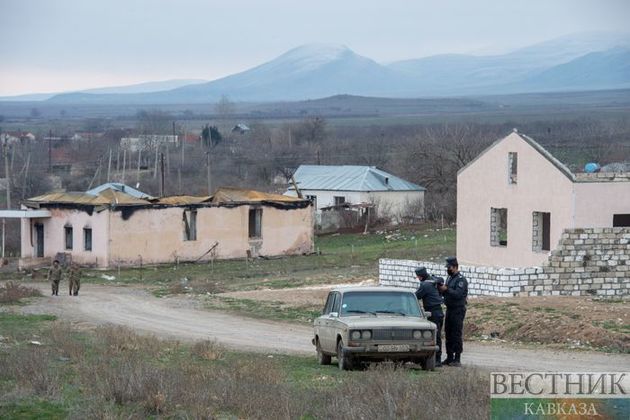After a war ends, preparation for signing a peace treaty between former conflicting states usually starts. However, five months after the end of the Second Karabkh War, the region is still full of problems which prevent relations between Armenia and Azerbaijan from normalization.
Firstly, it is militarization of the region as separatist paramilitary groups haven’t stopped their activity on the territory of Azerbaijan after signing the November agreement on Karabakh. Activity of illegal armed groups concurred with rearmament and re-equipment of the Armenian army devastated during the war. To prevent activities of sabotage groups on liberated territories, Azerbaijan detached a few dozens of Armenian citizens. Now the Armenian authorities have paid attention to these people. However, they weren’t interested in their citizens during several months until the early elections had been announced. Premier Nikol Pashinyan seems to hide his best card till the start of the election campaign. His opponents are supporters of the former president Robert Kocharyan.
The Azerbaijani side states about necessity of signing a comprehensive treaty on mutual respect and recognition of borders with further demilitarization of Karabakh and withdrawal of “remnants” of the occupation regime. Yerevan deliberately ignores it.
Secondly, the problem of demining of the Azerbaijani liberated territories is urgent in the region. During 30-year history of the confrontation, the occupied territories were dotted with mines. Most of mines are of Soviet origin - TM-62 anti-tank blast mines and PMN-2 anti-personnel mines. As time went on, mines went wrong. Thus, mined areas were frequently “renewed.” Baku demands mine areas maps from the Armenian side but Yerevan says that many mine fields haven’t been registered and their maps have been drawn quick and dirty and even got lost. Fresh mine barriers will be removed easily. For the rest, it will take a lot of time.
Thirdly, external interests of various geopolitical players are present in the negotiation process. They focus the process on certain benefits. Theoretically, Baku and Yerevan are able under Moscow’s mediation to deal and to start taking steps on recovery of lost communicational ties, including diplomatic relations.
Fourthly, there is still a problem of psychological attitude to the conflict as people have forgotten how to live in peace. Experience of Soviet international building is not attractive to Armenia and Azerbaijan in the modern reality. Moreover, there are no new mechanisms of peaceful existence of close ethnic communities. However, a complex of preventive steps is activated in the region to prevent shifting of crisis elements into regular warfare. Russian peacemakers deployed in Nagorno-Karabakh are doing it successfully. A significant step on the way to overcoming of ethnic and national confrontation could be a comprehensive agreement on joint living of peoples, building infrastructure, and development of resources within the framework of the international law.






